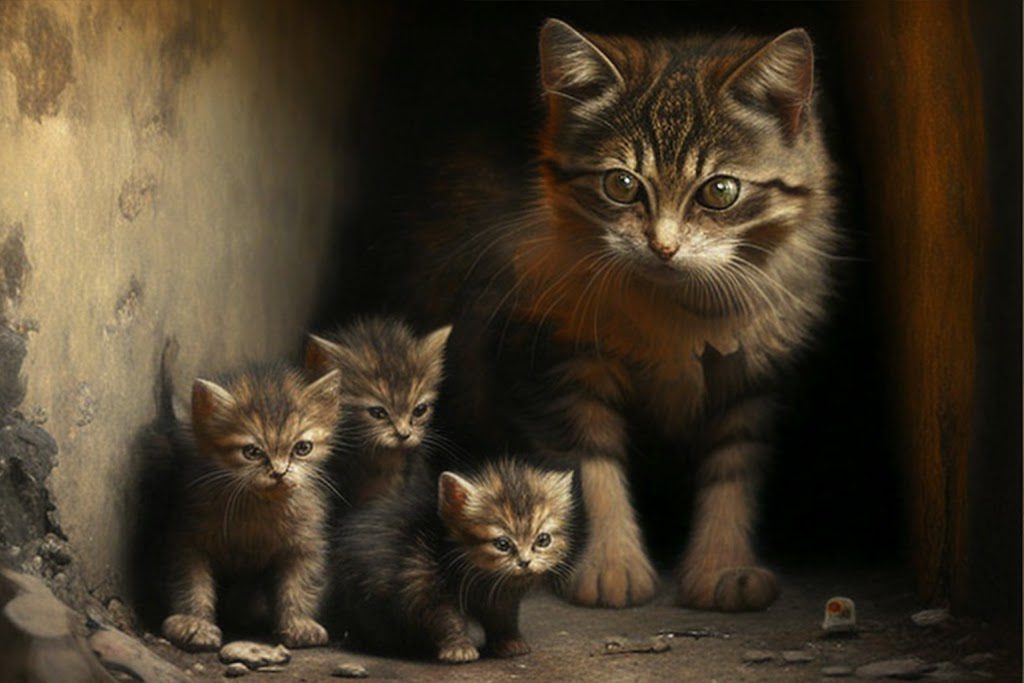Feral kittens, or kittens born to stray or outdoor cats, typically remain with their mothers until they are around 8-12 weeks old. During this time, the mother cat will teach the kittens how to hunt, groom themselves, and defend themselves.
Around 3-4 weeks of age, the kittens’ eyes will open and they will start to become more active. They will begin to explore their surroundings and start to play with each other. At this point, they will also start to wean off their mother’s milk and begin to eat solid food.
As the kittens reach 6-8 weeks of age, they will become more independent and start to venture farther away from their mother. They will also start to play more aggressively with each other and may start to hunt small prey.
At around 8-12 weeks of age, the kittens will be fully weaned and will be able to fend for themselves. At this point, they will typically leave their mother to start their own independent lives.
It’s important to note that feral kittens may face a number of challenges as they grow and mature, including difficulty finding food and shelter, exposure to diseases, and encounters with predators. As a result, many feral kittens do not survive to adulthood.
If you come across a litter of feral kittens, it’s generally best to leave them be and let their mother care for them. If the mother is absent or the kittens appear to be in distress, it may be necessary to intervene and provide care. In this case, it’s important to consult with a veterinarian or a local animal rescue organization for guidance on the best course of action.
- Feral kittens may be more likely to hide or flee when approached by humans, as they are not used to human interaction. This can make it difficult to determine their age or assess their health.
- Feral kittens may be more susceptible to parasites, such as fleas, worms, and ear mites, as they are not receiving regular veterinary care.
- Feral kittens may be underweight or malnourished due to a lack of access to consistent sources of food.
- Feral kittens may be at increased risk of injury or illness due to exposure to the elements and other hazards in their environment.
- Feral kittens may be less socialized to humans compared to domesticated kittens, which can make it more challenging to find homes for them.
- Feral kittens can be tamed and socialized with patience and consistent handling, but this process can be time-consuming and may not be feasible for everyone.
If you are considering taking in a feral kitten, it’s important to be aware of the challenges and responsibilities involved. Providing proper care for a feral kitten can be rewarding, but it is not a decision to be taken lightly. It’s a good idea to research the process thoroughly and seek guidance from a veterinarian or a local animal rescue organization before proceeding.



